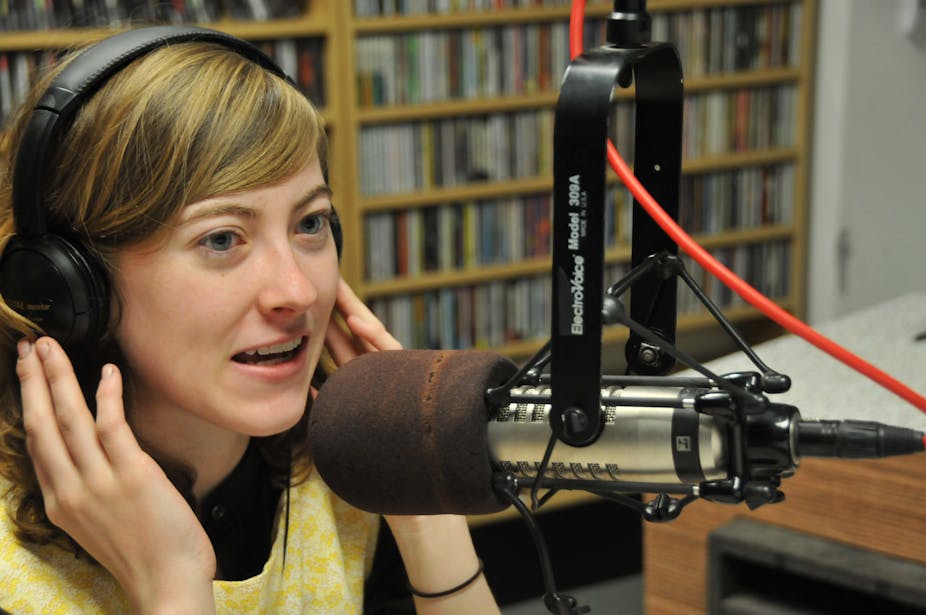Executives from four major news providers – BBC, ITN, Channel 4 and Sky – have pledged to try to improve the number of women interviewed as experts on their programmes; and this summer will be the test of that. They made this promise at a conference at City University London where former DCMS Secretary of State, Tessa Jowell called women’s representation in broadcasting “disgraceful”.
For the past two years the ratio has stuck at four males to every one female interviewed as experts on news programmes. This has been confirmed by our research, done in the Department of Journalism at City from March 2012 to April 2014.
I started looking at this informally in 2010 when I was furious at listening to “Today” on BBC Radio 4 and not hearing a woman’s voice for about 40 minutes. Then I realised that was a good day.
I asked students to help me count the number of women on the programme over a three-week period and we found that male expert interviewees outnumbered women by as much as six to one. In fairness, in four years Today has improved from dire, to just as bad as the rest. The figure has settled at four to one over five flagship news programmes despite broadcasters’ reporting strenuous efforts to improve the ratio. The magazine Broadcast has run a campaign called Expert Women since March 2012 based on our figures and this certainly caused an initial, positive response. But now things have stagnated.
The programmes we measure are BBC News at Ten, ITV News at Ten, Channel Four News, Sky News (selected evening bulletins) and Today. Between them, daily, they are consumed by about 6m different people. A spin off is that we now also have data on how many women reporters, presenters and interviewees there are. And it’s not a good read for an egalitarian.
So why is this? Do women in society have less important roles than men, to the ratio of 80/20? No. The evidence is that the ratio of authoritative or expert roles in society generally is much more 70% to 30% (2.3-1) with a growing proportion of women getting important jobs.
Some journalists maintain it is childcare which keeps women off the airwaves. But that is not the case either. According to the Broadcast Audience Research Board, only a third of women in the UK have children under 15. So even if every woman with a child was unable to be on TV or radio at any time, there would still be a ratio of 70% men, 30% women available to be experts on air.
It could be that women are considered less interesting and important than men. In 2011 the editor of the Today programme Ceri Thomas commented that there was no opportunity for women journalists on his show, “because it is too tough an environment for novices, frankly”. The idea that there were women broadcasters who already existed, who were able to cope with the Today programme, was beyond his comprehension.
This belief – that women as authority figures were not quite up to it – was prevalent in the broadcasting industry. Guest getters I spoke to said, “You learnt from the people that had been doing it for years. When you wanted someone on say, retail, you went to X or Y (both male), that’s just what you did.” They told me programme guests were “generally white, over 40, male, in suits or uniforms”. But guest getters also reported that women were notoriously difficult to recruit, and needed far more persuasion and reassurance. Not surprising perhaps given the lack of role models.
In 2013 the BBC Academy looked at the problem from this perspective and decided to hold training days for women experts. They offered 30 places and more than 2,000 women applied. So the BBC rolled it out to the regions as well. I sent questionnaires to the 164 women who eventually took part. 31 replied. Crucially, 71% reported lack of confidence, and 45% actually cited pressure from peers and the fear of being “pushy”.
This was particularly marked in women in academia. Academics often work alone and jealously protect their areas of expertise. The culture of peer review and attack means that academics seem particularly sensitive to criticism. Of course many women can give as good as they get, but when the top roles are dominated by men, it is hard to get a foothold and junior academics often prefer to avoid the fray than to be savaged. Even female astrophysicists and chemists found it hard to put themselves forward as experts to be exposed on TV and radio, though they clearly wanted to – otherwise why would they have taken part in the BBC’s training days?
We also found that male reporters outnumber female reporters three to one. Yet my experience, and the research of my colleague Suzanne Franks, shows more than 60% of journalism students are women, most of whom, initially at least, want to be on air. But they don’t make it. Many are told that having a family is incompatible with being “on the road”.
But the macho insistence on being ready to race to the scene of a story and stay there for days on end regardless of the family is not a reality for most reporters who finish their shift and go home like everyone else. Even when stories like that do happen (and it’s not as often as you think) what is to stop women leaving the children for a few days? Men do.
Campaigns come and go. It’s easy to dismiss this one by saying there are more important things in the world than the number of women on TV. But fairness and equality is vital to our culture. It’s ironic that both broadcast journalists and recognised academic experts, so often ready to fight for justice in the wider world, don’t seem to apply it when it comes to their female colleagues.

